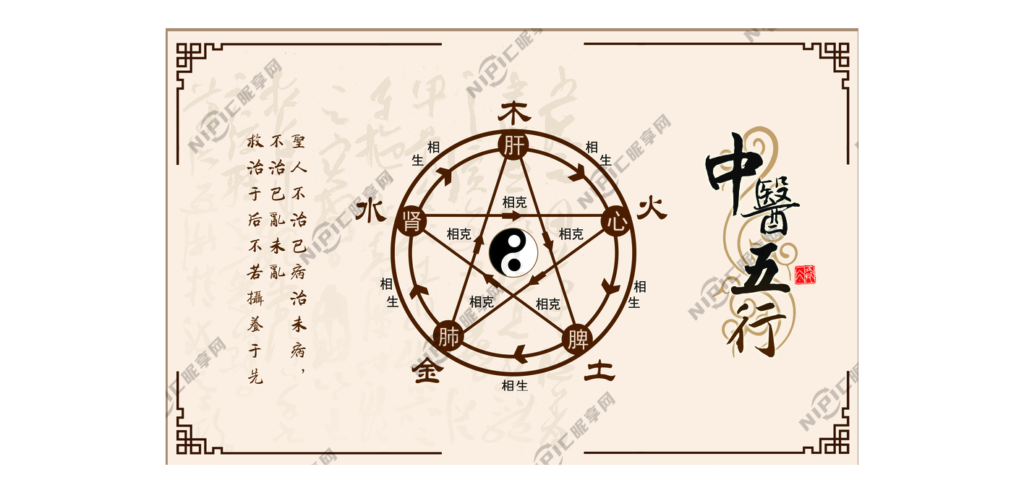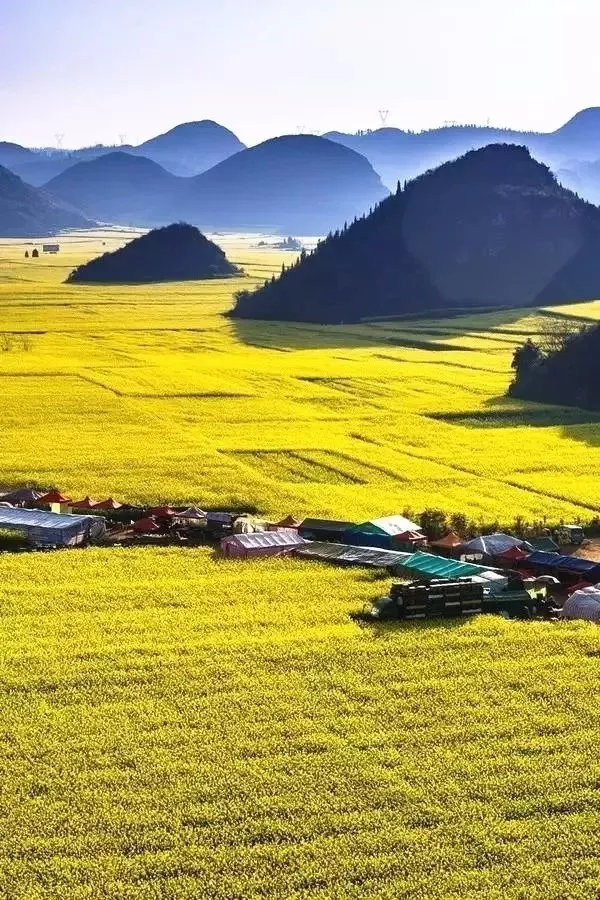fengshui-19-24
produces metal, metal produces water, water produces wood. On the other hand, metal destroys wood, wood destroys earth, earth destroys water, water destroys fire, fire destroys metal. Again it is to be considered that wood is abundant in the East, metal in the West, water in the North, fire in the South, whilst earth predominates in the centre between the four cardinal points. It is also to be borne in mind, that wood reigns in spring, fire in summer, metal in autumn, water in winter, and earth during the last eighteen days of each season. In this way the fivefold influence of the planets pervades and rules all nature, as, for instance, the five constituents of the human frame, muscles, veins, flesh, bones, skin, and hair; the five inward parts or viscera, viz., heart, liver, stomach, lungs, and kidneys; the five colours, white, black, red, blue, and yellow; the five fortunes, riches, honour, longevity, children, and a peaceful death; the five social relations, prince and minister, father and son, husband and wife, older and younger brothers, and friends.

In addition to the influence which according to the laws of nature heaven and earth exercise upon the destinies of living beings, there are to be considered the laws regulating the influence of the spirits of the dead upon the living. This is a doctrine which seems strange to us, but which has nothing unreasonable in itself to a Chinaman accustomed to worship the spirits of his ancestors, whom he supposes to be constantly hovering near, and to whom he therefore formally announces every event in his family, and offers sacrifices of meat and drink.
“My own animal spirits,” says the Commentator to the Analects of Confucius, “are the animal spirits of my progenitors. When on my part I carry to the utmost my sincerity and respect in worshiping them, then the spirits of my ancestors are present with me. Just like a stalk of grain, when the original plant is dead, new roots appear on the side—thus connecting the identical real spirit down from past generations to the present time.”
Though we speak of heaven and earth, said Choo-he, yet there is in reality but one breath (spirit) that upholds them. Though we speak of individuals, and distinguish one from the other, yet there is in reality but one breath that animates them all. My own breath (spirit) is the identical breath (spirit) of my ancestors. This idea of the organic unity, nay identity, of the spiritual basis of life in nature and life in individuals, was a favourite theme of discussion with Choo-he and other philosophers of the Sung dynasty.
According to this now universally influential school, the human soul is possessed of a dual nature, and leads, as it were, a double life. They distinguish an animus and an animal. The former is the energy of human nature as embodying the male principle of nature. The breath of the animus is the breath of heaven. The animal, on the other hand, is the redundancy or plethora, so to speak, of the contracting (female) energy of nature. The breath of the animal is the breath of the earth. The animus is the spiritual, the animal the material or animal element of the soul.
When, through the exhaustion of the vital breath, the body is broken up, the animus returns to heaven, the animal to earth; that is to say, each is dissolved again into those general elements of nature each derived its origin and the temporary embodiment of which each was within the sphere of individual life.

The souls of deceased ancestors therefore are as omnipresent as the elements of nature, as heaven and earth themselves. Thus the Chinese have been taught to consider themselves as constantly surrounded by a spirit world, invisible indeed and inaccessible by touch or handling, but none the less real, none the less influential.
Now, the common people have the notion, which is no doubt but a popularized application of the above-given philosophical propositions, that the souls of the ancestors are by their animal nature chained, as it were, for some time to the tomb in which their bodies are interred, whilst by their spiritual nature they feel impelled to hover near the dwellings of their descendants, whence it is but a natural and logical inference to suppose, that the fortunes of the living depend in some measure upon the favourable situation of the tombs of their progenitors.
If a tomb is so placed, that the animal spirit of the deceased, supposed to dwell there, is comfortable and free of disturbing elements, so that the soul has unrestricted egress and ingress, the ancestors’ spirits will feel well disposed towards their descendants, will be enabled to constantly surround them, and willing to shower upon them all the blessings within reach of the spirit world.
So deeply ingrafted is this idea of the influence of the dead upon the living, that Chinese wishing to get into the good graces of foreigners will actually go out to the Hong Kong cemeteries in the Happy Valley, and worship there at the tombs of foreigners, supposing that the spirits of the dead there, pleased with their offerings and worship, would influence the spirits of the living, and thus produce a good understanding between all the parties concerned.
Naturally, therefore, every Chinaman takes the greatest pains to place the tombs of his relatives in such a situation, that no star or planet above, nor any terrestrial element below, no breath or subtle influence of nature, no ill-portending configuration of hills and dales, should disturb the quiet repose of the dead, for upon this depend the fortunes and misfortunes of the living.

It is consequently important to know the rules by which the luckiest spot for a grave can be found, and as the place best adapted for a grave depends principally upon the happiest conjunction of all heavenly and terrestrial elements, it is clear, that the method by which the most suitable site for a tomb is found, is also applicable for the selection of a good site for a dwelling-house or any place of abode whatsoever. For the same influences which act upon the animal spirits of the dead have also their bearing upon the living.
We have to do here, however, only with general principles, and I will state the rules applicable to this purpose as briefly as possible.
In the first instance it must be understood, that there are in the earth’s crust two different, shall I say magnetic, currents, the one male, the other female; the one positive, the other negative; the one favourable, the other unfavourable. The one is allegorically called the azure dragon, the other the white tiger.
The azure dragon must always be to the left, the white tiger to the right of any place supposed to contain a luck-bringing site. This therefore is the first business of the geomancer on looking out for a propitious site, to find a true dragon, and its complement the white tiger, both being discernible by certain elevations of the ground. Dragon and tiger are constantly compared with the lower and upper portion of a man’s arm: in the bend of the arm the favourable site must be looked for. In other words, in the angle formed by dragon and tiger, in the very point where the two (magnetic) currents which they individually represent cross each other there may the luck-bringing site, the place for a tomb or dwelling, be found.
I say it may be found there, because, besides the conjunction of dragon and tiger, there must be there also a tranquil harmony of all the heavenly and terrestrial elements which influence that particular spot, and which is to be determined by observing the compass and its indication of the numerical proportions, and by examining the direction of the water-courses. In illustration of this I may remark that the favourable situation of Canton city consists in this, that it is placed in the very angle formed by two chains of hills running in gentle curves towards the Bogue, where they almost meet each other, forming a complete horse-shoe.
The chain of hills known as the White Clouds represent the dragon, whilst the undulating ground on the other side of the river forms the white tiger. The most favourable site of Canton is therefore the ground near the North-gates, whence tiger and dragon run out to the right and left. For the luckiest spot, say the Feng-shui books, is like a modest virgin, loving retirement, and it is therefore one of the first rules to look, in a doubtful case, for a happy site in a recess.
Another rule is, that on perfectly monotonous ground, on a perfectly level plain, or on monotonously steep declivities, where there is no indication of dragon and tiger, no good site can possibly be found.

